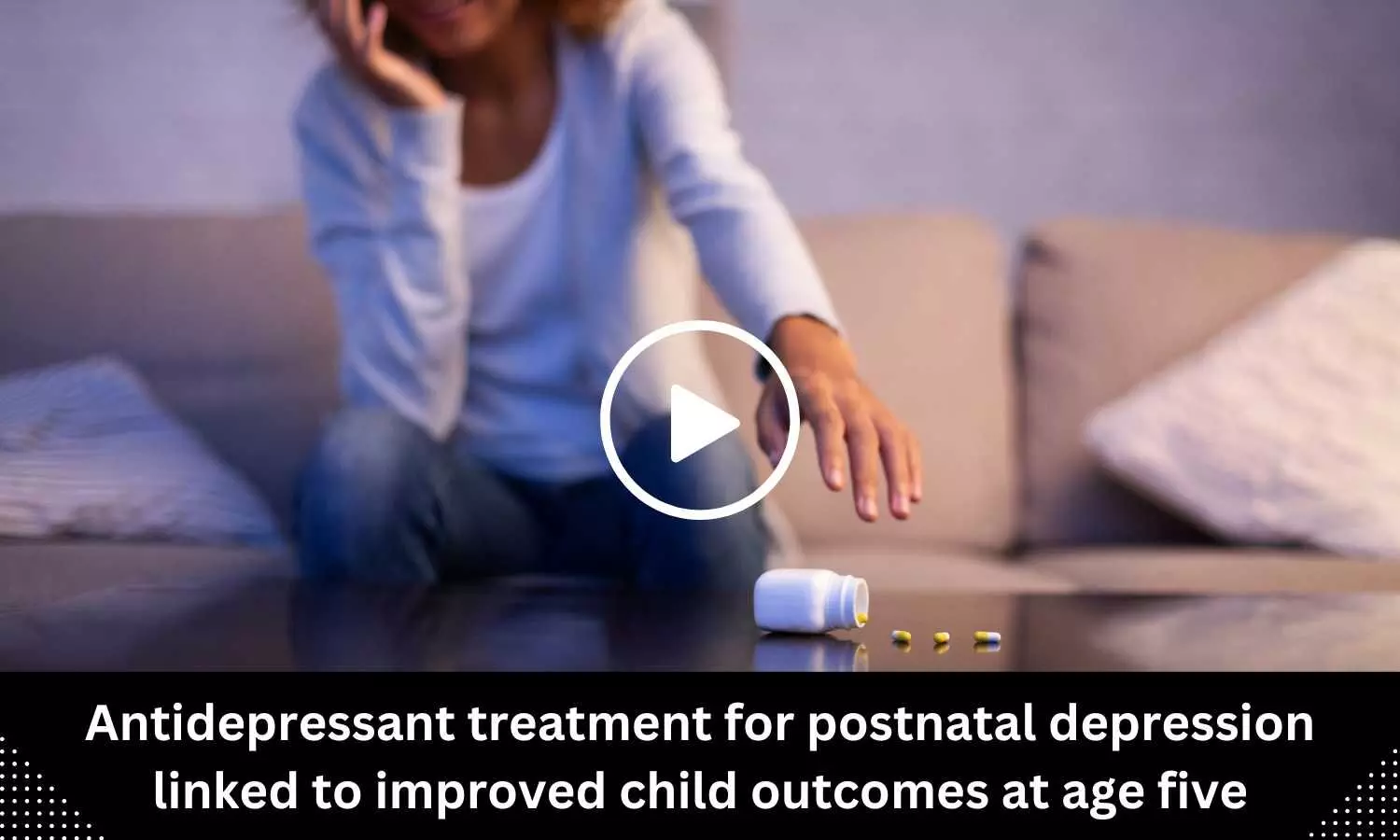Antidepressant treatment for postnatal depression linked to improved child outcomes at age five

New research led by the Institute of Psychiatry, Psychology & Neuroscience (IoPPN) at King's College London has found that selective serotonin reuptake inhibitor (SSRI) treatment for postnatal depression is associated with improvements in child behaviour up to five years after childbirth.
Researchers at King’s IoPPN, in collaboration with the University of Oslo, analysed data from over 61,000 mothers and their children recruited during pregnancy from the Norwegian Mother, Father and Child Cohort Study. The researchers investigated how postnatal SSRI treatment modified the negative outcomes associated with postnatal depression in mothers and their children.
The study, published in JAMA Network Open, found that SSRI treatment for postnatal depression was associated with better outcomes up to five years after childbirth than mothers with postnatal depression who did not take SSRIs. These included reduced child behavioural difficulties (such as conduct problems and antisocial behaviour), child ADHD symptoms and maternal depression, as well as improved satisfaction in partner relationships.
The findings suggest that SSRI treatment could bring mid- to long-term benefits to women with postnatal depression and their children by reducing the risk of several negative outcomes that are associated with postnatal depression.
Reference: Long-term maternal and child outcomes following postnatal Selective Serotonin Reuptake Inhibitor treatment (Chao-Yu Liu, Eivind Ystrom, Tom A. McAdams) was published in JAMA Network Open (DOI: 10.1001/jamanetworkopen.2023.31270).
from Medical News, Health News Latest, Medical News Today - Medical Dialogues | https://ift.tt/VtNGPLn
Comments
Post a Comment